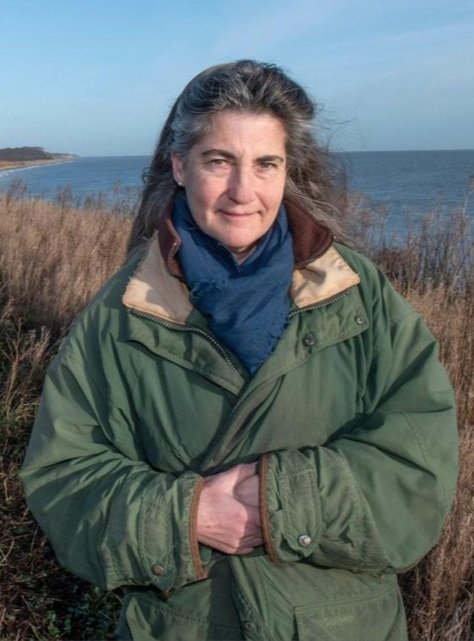Juliet Blaxland
Juliet Blaxland is a former architect and award-winning author of two books about Suffolk and coastal erosion.
Twitter: @julietblaxland
Biography
Juliet Blaxland is a former architect, published writer, cartoonist and illustrator. She grew up in a remote part of Suffolk and spent many years living on the cliff edge of the easternmost part of England in a house known as the Easternmost House. The remarkable landscape, the sea, wildlife and shifting coastline where she makes her life are her subjects.
She is the author and illustrator of ten children’s books about a greyhound called Speedy, published by the Retired Greyhound Trust. Her cartoon series, Life in a Listed Building, was published monthly in the Prince of Wales's architecture magazine Perspectives, and won a prize at the Royal Academy Summer Exhibition. She is also a prize-winning photographer and a judge for the 2025 New Angle Prize for Literature.
Awards
Shortlisted for the Wainwright Prize 2019
Shortlisted for East Anglia Memoir of the year 2019
The Times Nature Book of the Year 2019
The iNewspaper Nature Book of the Year 2019
The Daily Mail Best Books for Nature Lovers 2019
Shortlisted for the East Anglian Book Awards 2021
Books
The Easternmost House
Her first adult non-fiction title, THE EASTERNMOST HOUSE (Sandstone Press, 2019) is a highly acclaimed memoir encompassing a year of life on the edge of England, meditating on nature, coastal erosion and the changing seasons. The house was demolished before it fell into the sea.
The Easternmost Sky
THE EASTERNMOST SKY: Adapting to Change in the 21st Century (Sandstone Press 2021) forecasts with wit and imagination the future we will all have to adapt to, in Britain and across the world.
‘Destined to be a 21st Century classic. Just brilliant.’ John Lewis-Stempel



